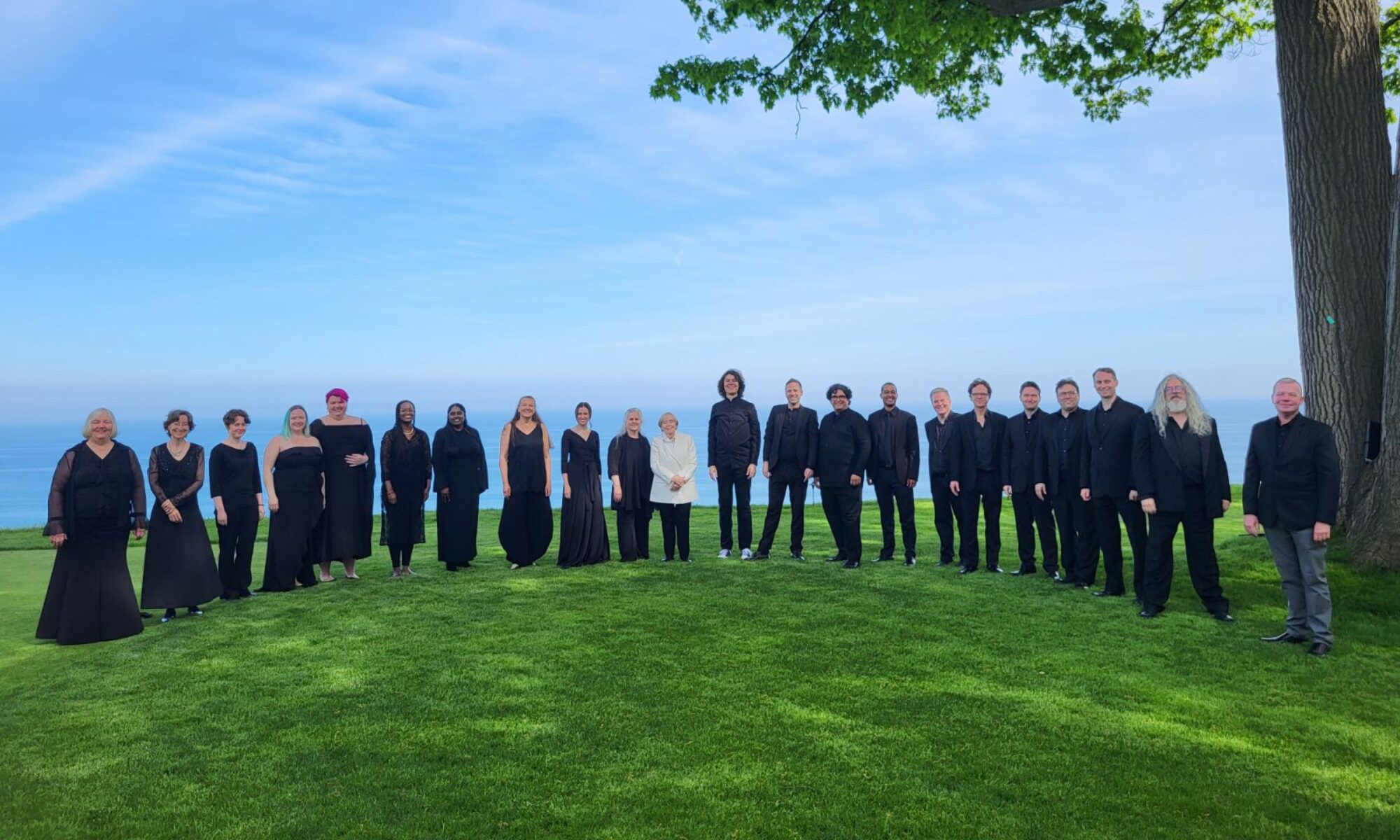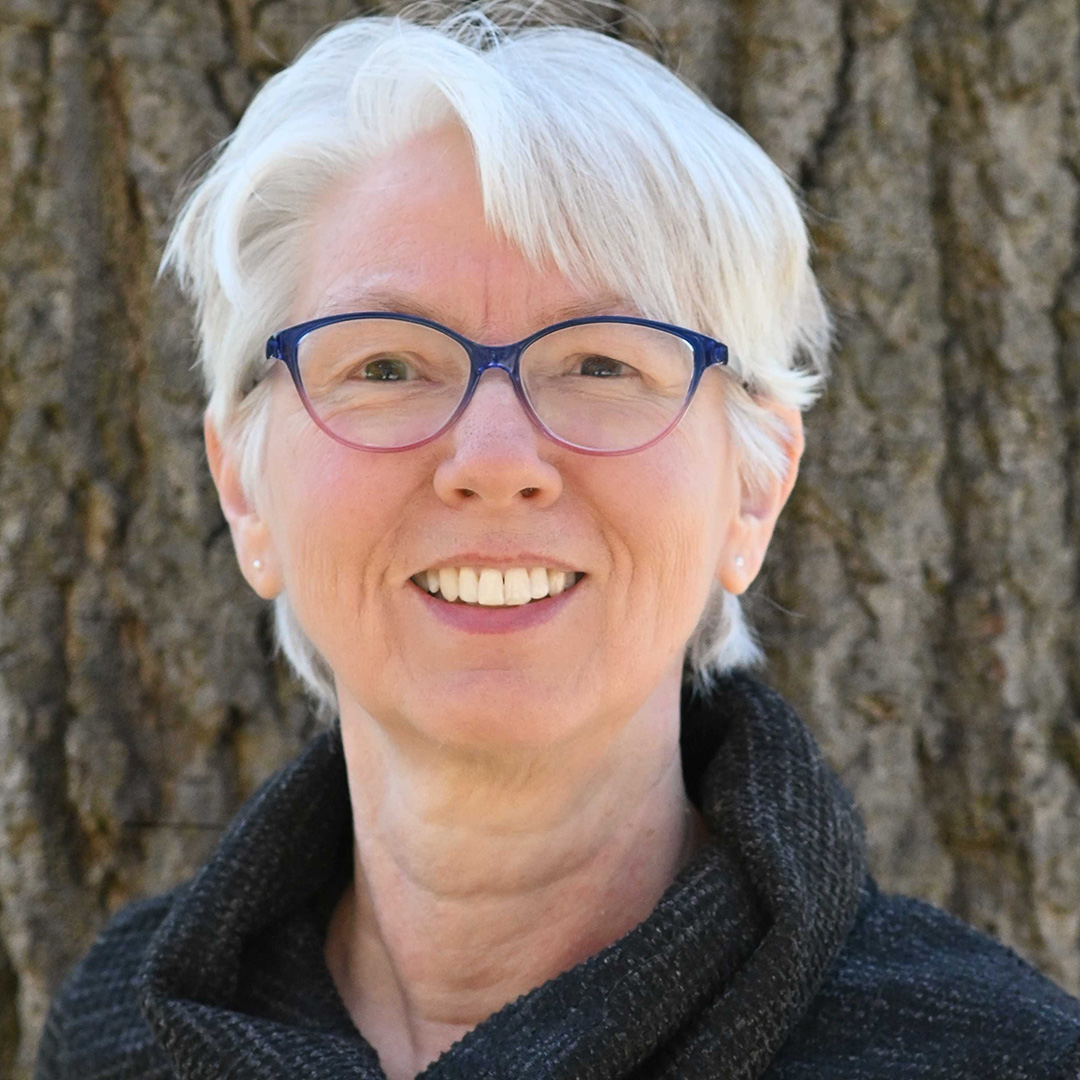The Elmer Iseler Singers acknowledge that we are based on the traditional territory of many nations including the Mississaugas of the Credit, the Anishnabeg, the Chippewa, the Haudenosaunee and the Wendat peoples and is now home to many diverse First Nations, Inuit and Métis peoples. We also acknowledges that Toronto is covered by Treaty 13 signed with the Mississaugas of the Credit, and the Williams Treaties signed with multiple Mississaugas and Chippewa bands.
Regardless of what part of the country we come from, we are all privileged to be able to gather regularly in song on lands that are deeply rooted in First Peoples traditions. We are all grateful to have the opportunity to work, to live, to meet and, especially, to make music on these beautiful lands.
Les Elmer Iseler Singers reconnaissent que nous sommes basés sur le territoire traditionnel de nombreuses nations, y compris les Mississaugas du Credit, les Anishnabeg, les Chippewa, les Haudenosaunee et les Wendat, et que nous abritons maintenant de nombreux peuples des Premières Nations, Inuits et Métis divers. Nous reconnaissons également que Toronto est couverte par le Traité 13 signé avec les Mississaugas of the Credit, et les Traités Williams signés avec plusieurs bandes de Mississaugas et de Chippewa.
Peu importe nos origines, nous avons le grand privilège de pouvoir nous rencontrer en chanson sur des terres profondément liées aux traditions des Premiers Peuples. Nous sommes tous très reconnaissants de pouvoir vivre, travailler, nous réunir et, surtout, faire de la musique sur ces beaux territoires.
Pronunciation
Anishnabeg: (ah-nish-naw-bek)
Haudenosaunee: (hoodt-en-oh-show-nee)
Métis: (may-tee)
What is a land acknowledgement and why do we do it?
A territorial or land acknowledgement involves making a statement recognizing the traditional territory of the Indigenous people(s) who called the land home before the arrival of settlers, and in many cases still do call it home. Indigenous peoples have been acknowledging the land at the start of gatherings, ceremonies and events for time immemorial. With the release of the Truth and Reconciliation Commission, more non-Indigenous people are becoming aware of the importance.
Providing a land acknowledgement at the beginning of an event or meeting gives time for reflection and demonstrates recognition of Indigenous lands, treaties and peoples. It involves thinking about what happened in the past and what changes can be made going forward in order to further the reconciliation process. Land acknowledgements mark a small and important step in the process of reconciliation and building a positive relationship with Indigenous peoples. By making a land acknowledgement you are taking part in an act of reconciliation, honouring the land and Indigenous presence which dates back over 10,000 years.
Using and participating in a land acknowledgement is a way to recognize the enduring presence and resilience of Indigenous peoples in this area for time immemorial. They are also a reminder that we are all accountable to these relationships.
* “Pronunciation” and “What is a land acknowledgement and why do we do it?” sections quoted from the City of Toronto Website.










































